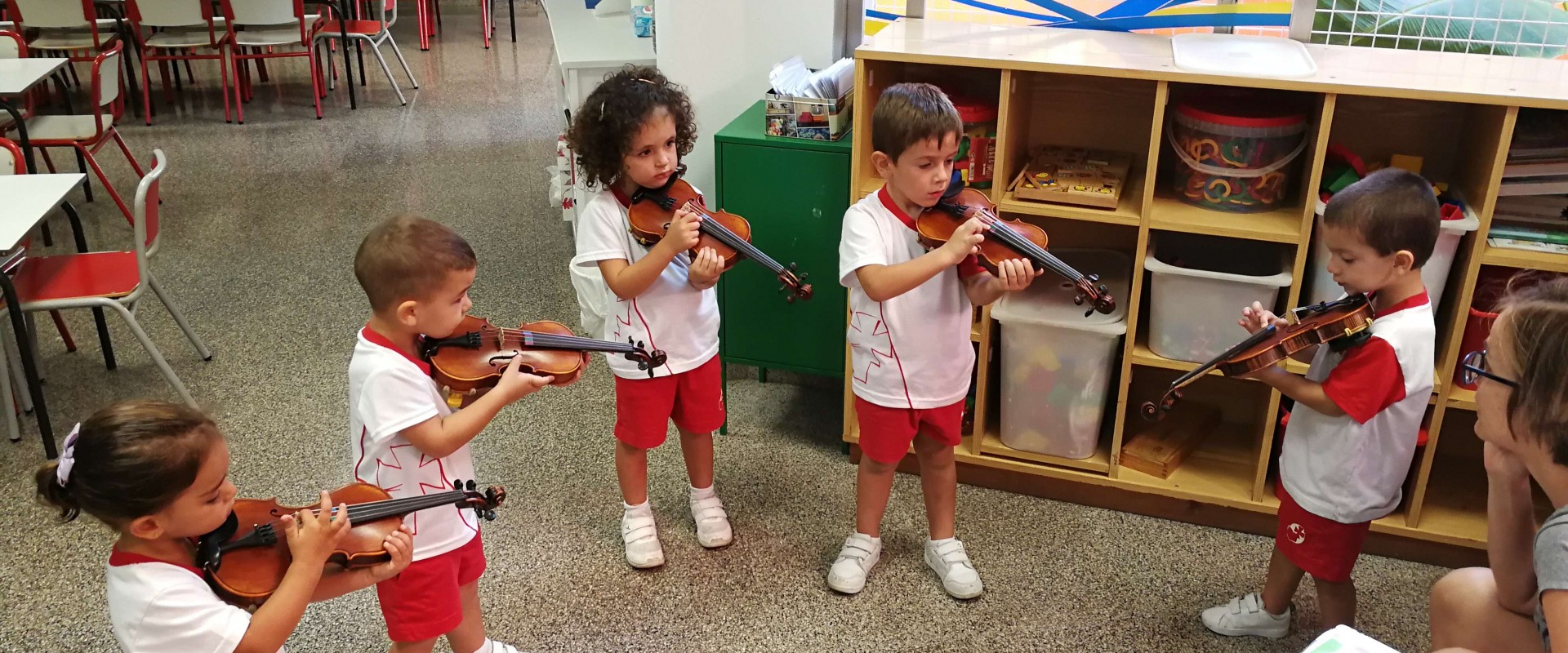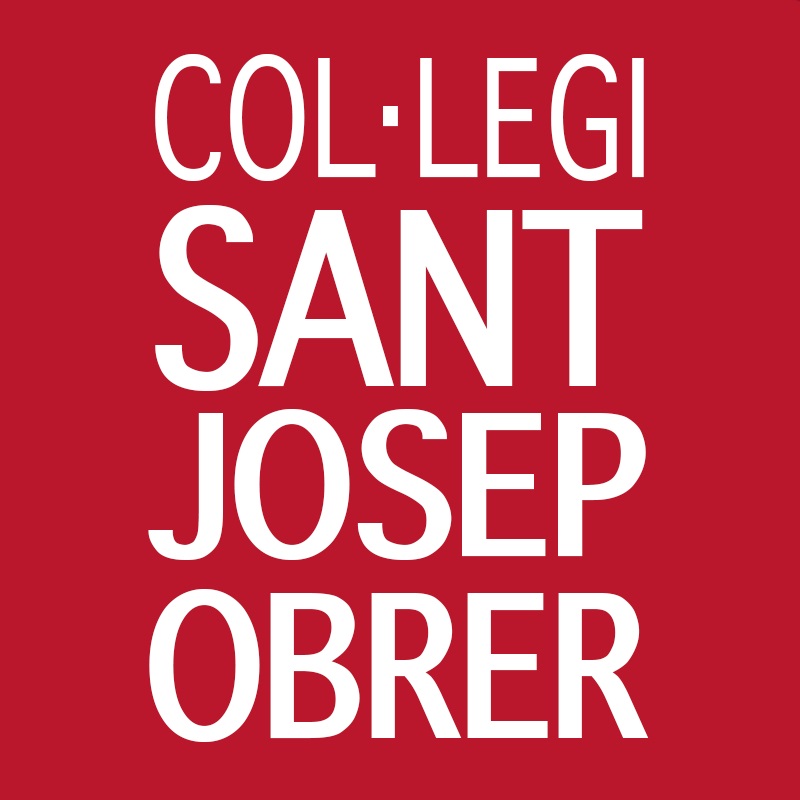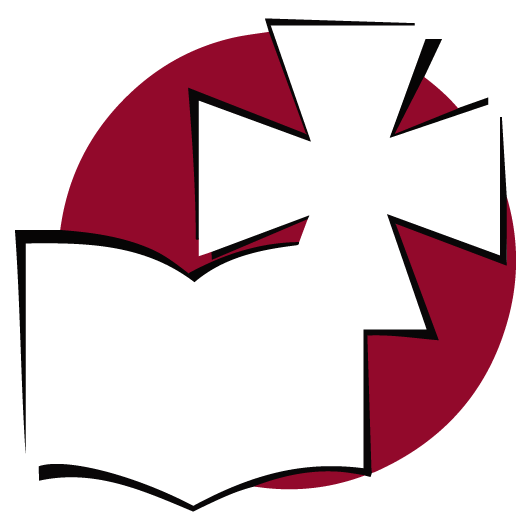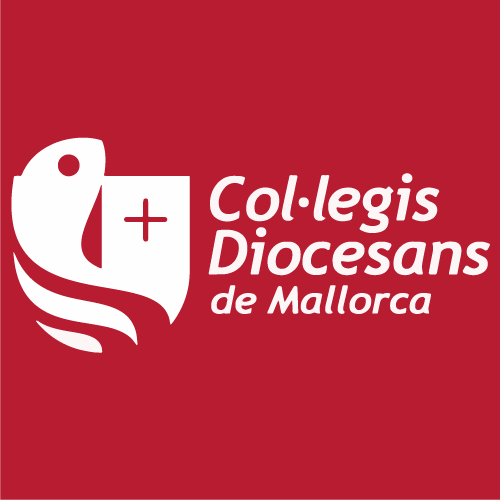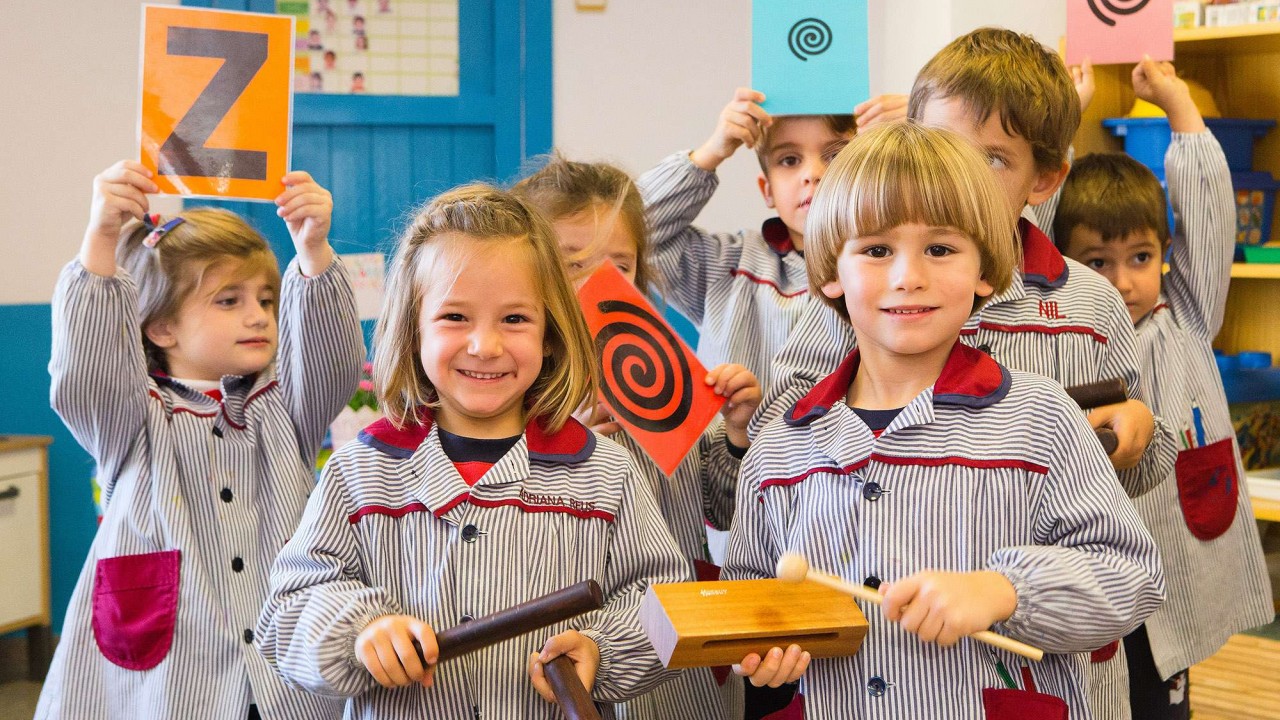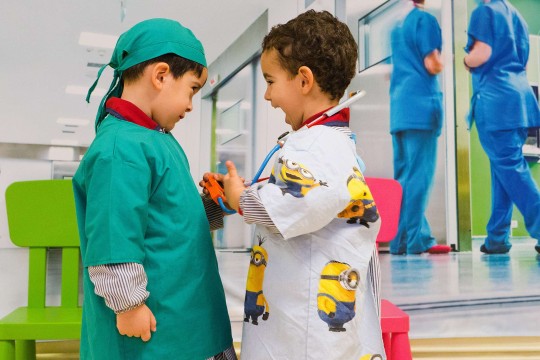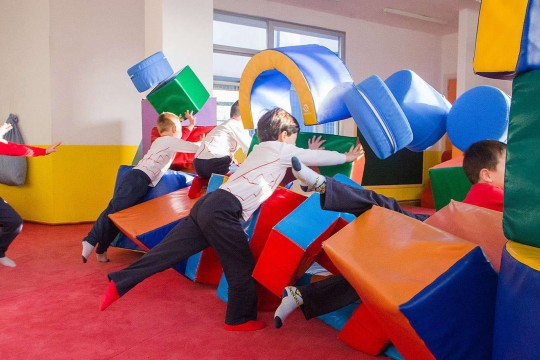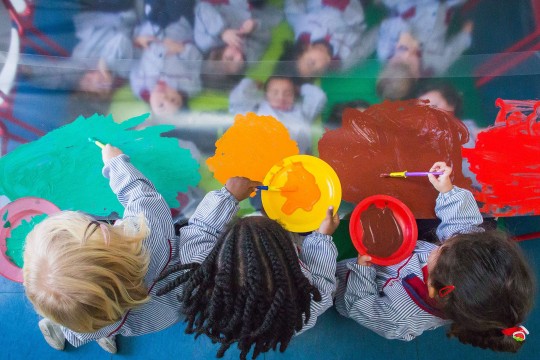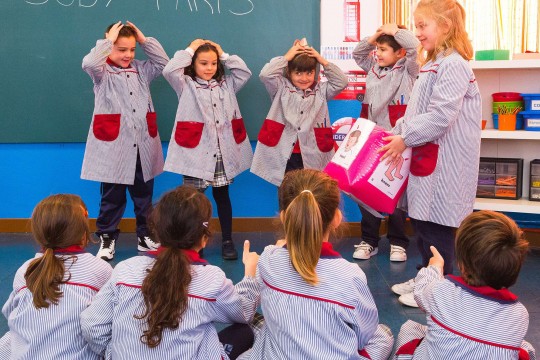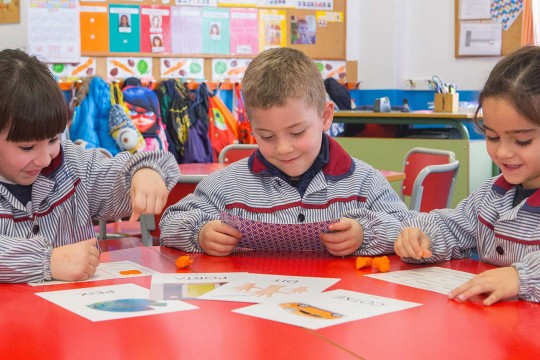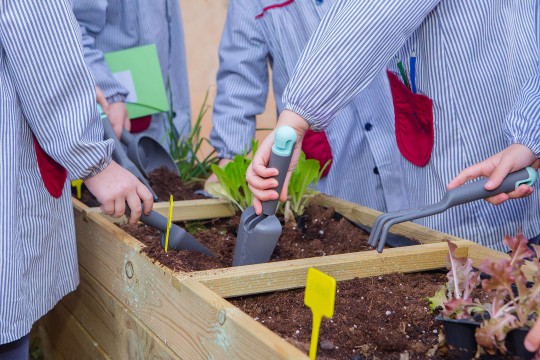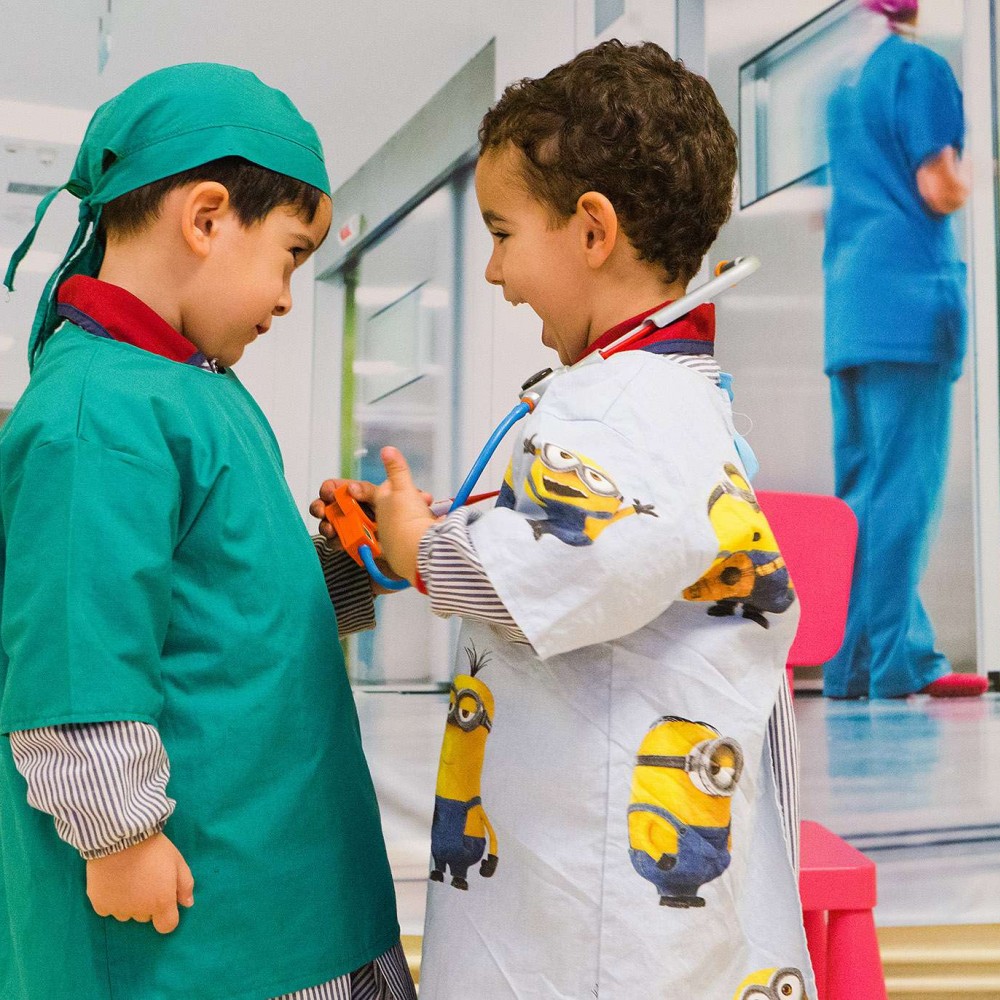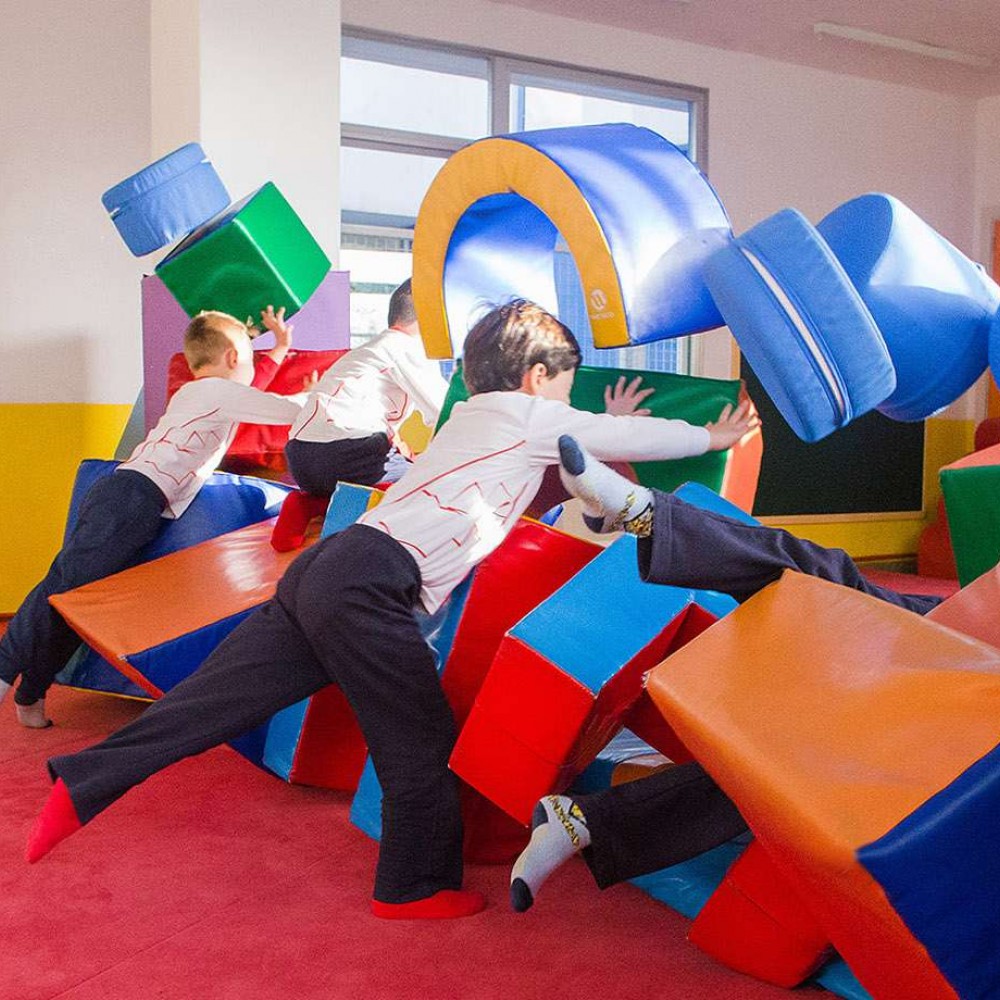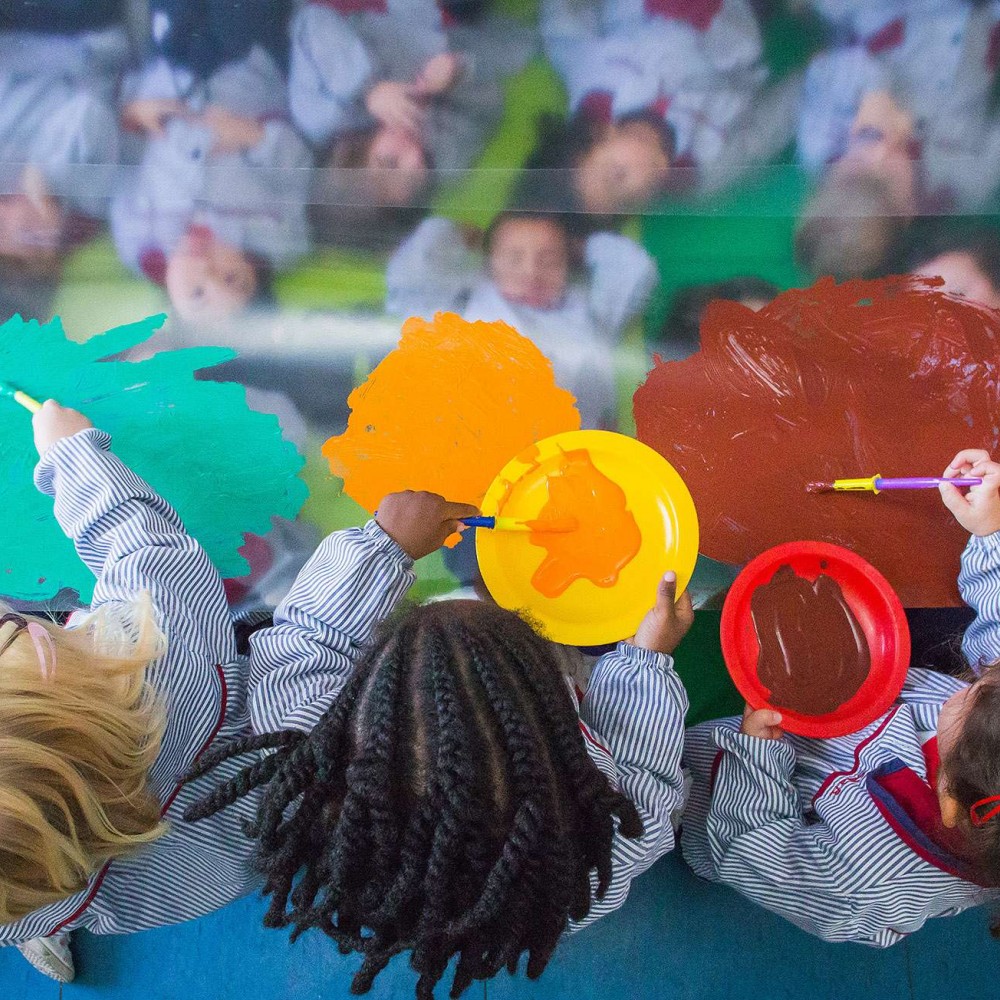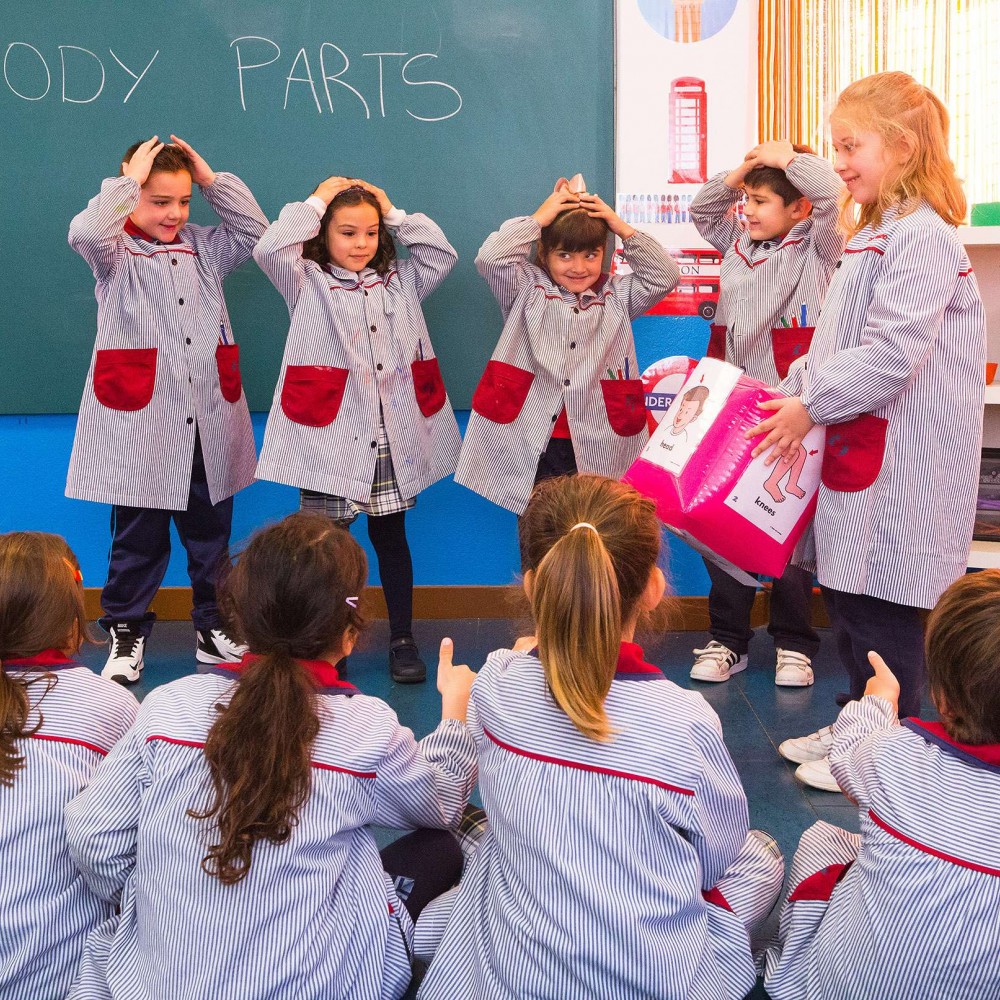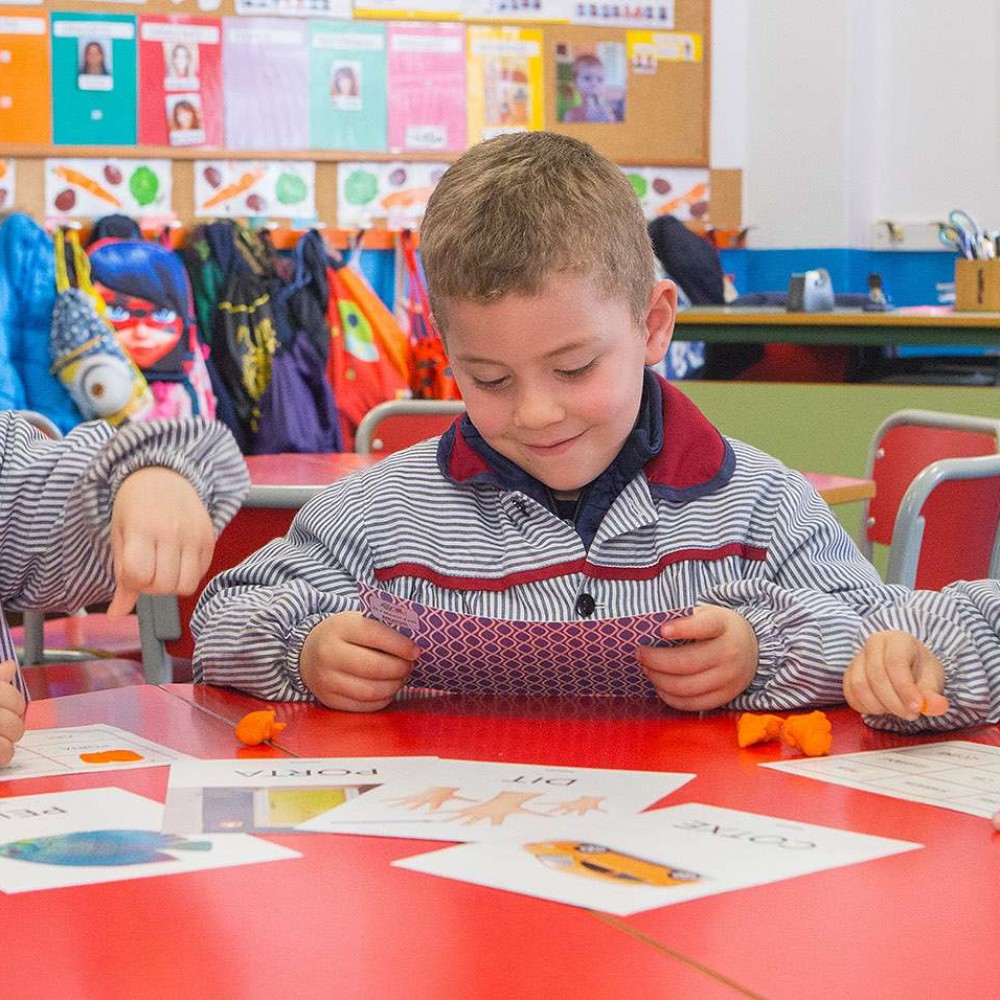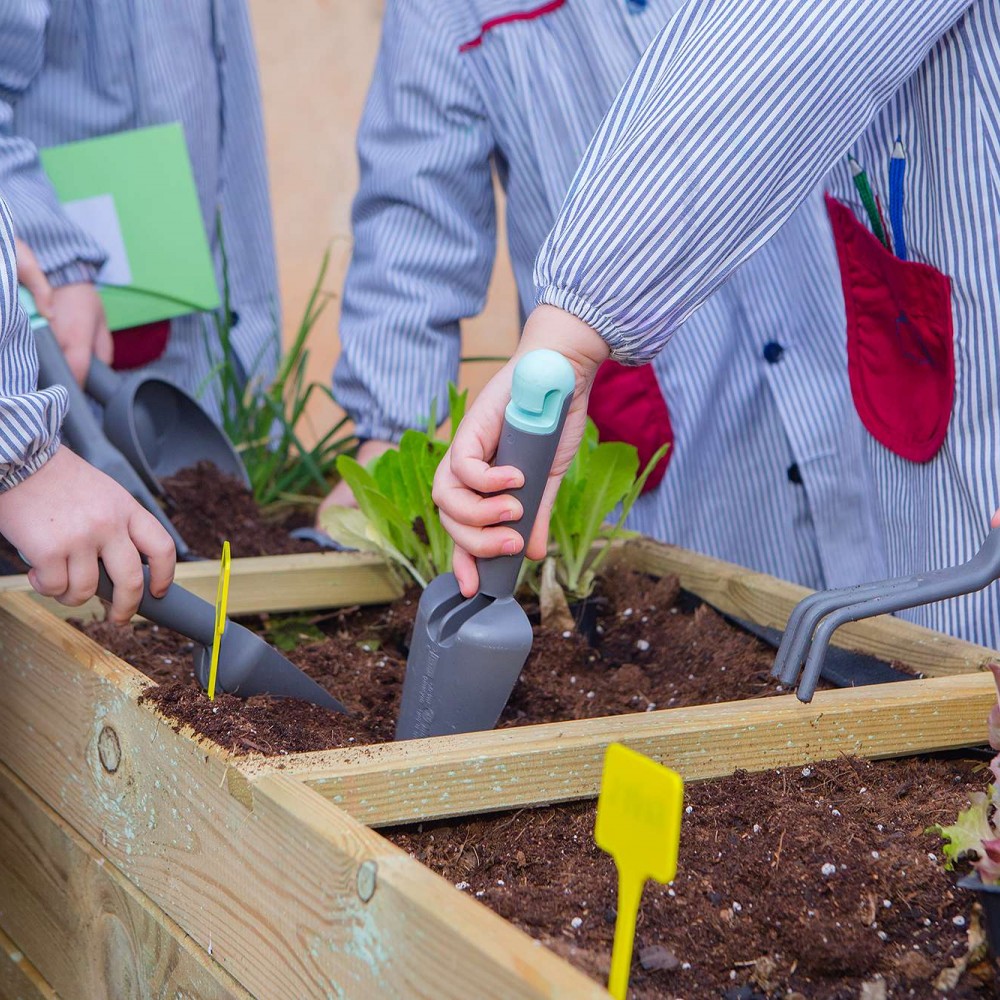Pre primary education- second cycle
CORPUS CHRISTI and SANT JOSEP OBRER
Project "Entusiasmat"
This is a pedagogical and didactic project aimed at students age 3 to 12 (in two different blocks, kindergarden and primary school). Maths are taught in a useful, realistic, practical and fun way. This theory builds on the multiple intelligence approach to work on the individual’s capabilities. Cooperative work, deductive learning, handling and playing play an essential role in this method.
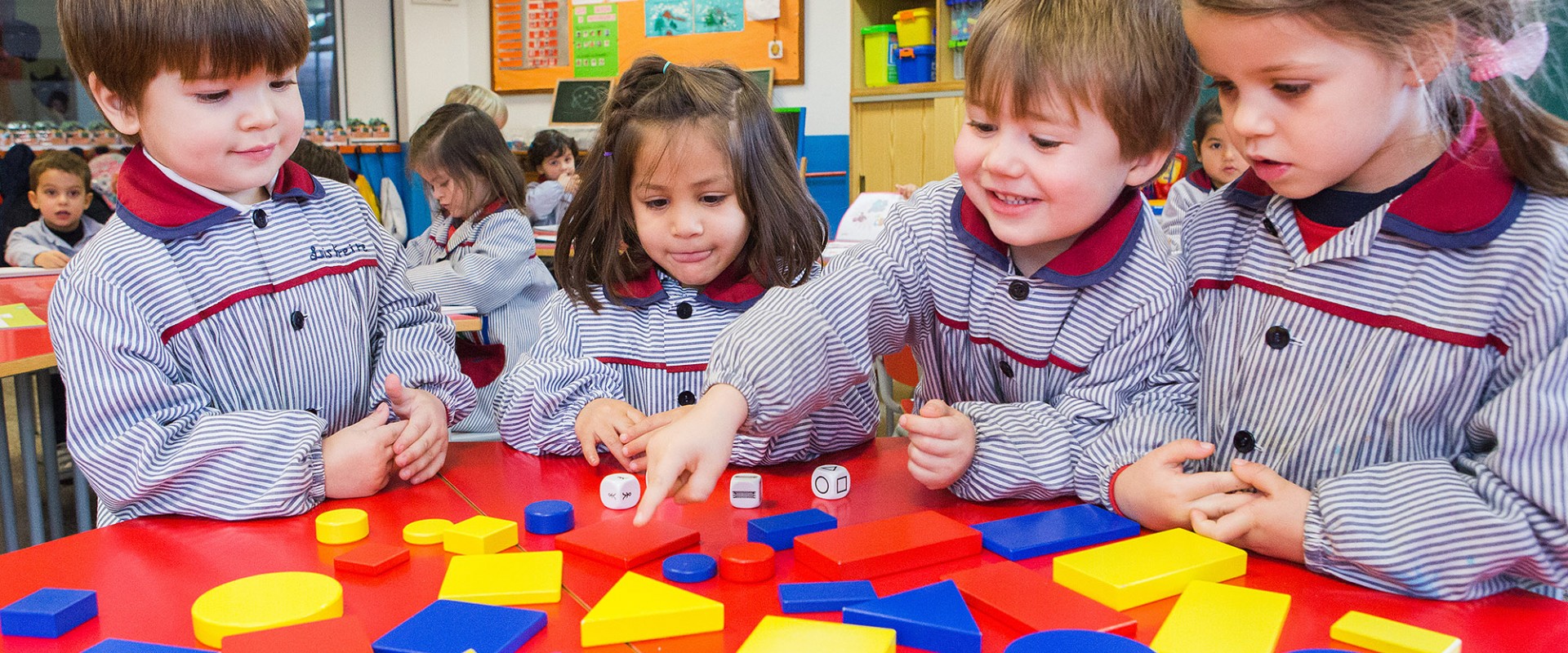
Music
Giving the first step toward a universal language.
This is a space where children learn, enjoy and experience the qualities of sound through their own body as a sound instrument, using their voice and the handling of classical instruments, small percussion instruments, songs and games.
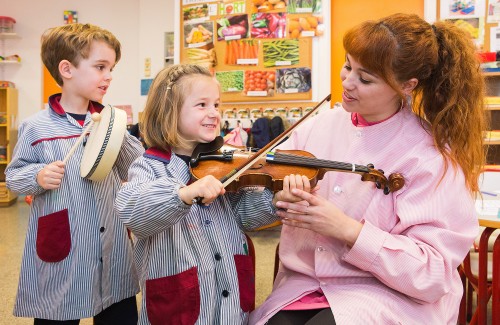
Parent workshop
We foster mums and dads’ involvment in our school life and in the learning process of their children. We consider this to be not only a basic right but an obligation too. The school-familiy link is a very important one, since it helps us all to feel part of a same project, with share aims and meanings.
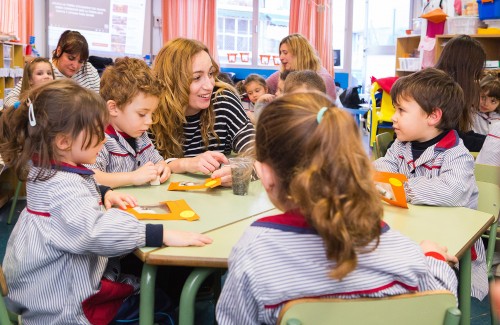
Games Library
Symbolic playrooms fulfil our children’s need to meet their classmates, to relive, while playing, daily situations and to play different roles according to what they have previously observed in their natural environment.
Playrooms are spaces designed for recreational activities in which children must take part in a free, creative and imaginative way. These spaces foster communication and relationships and they are considered a first step toward socialization. Even young students need to share spaces, games, toys, to negotiate and establish behaviour and play rules.
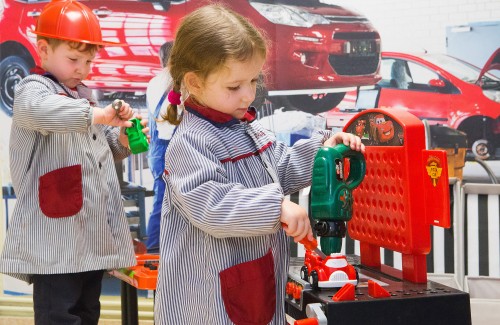
Psychomotricity
Psychomotricity training is extremely important for the physical, emotional and social development of our children. Through the exploration of new materials, they put our children’s creativity and imagination into action, helping them, at the same time, to improve their motor skills, such as coordination, balance and laterality. Psychomotricity sessions take place in a magic classrom: movement, mind, body, breathing, relationship, respect. Children grow, play and learn through movement.
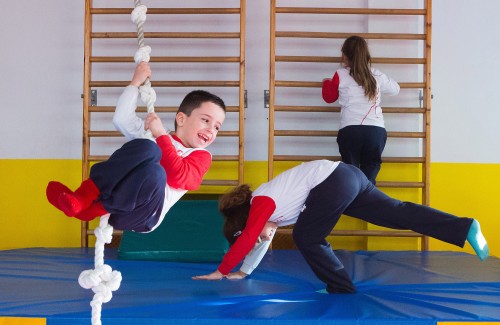
Plastic Arts
Plastic expression is one of the most spontaneous and satisfactory activities for children. From a very young age they are thrilled by the thought of leaving their own mark on all kinds of support. The aim in a child’s first years is to let him enjoy plastic activities, which are seen as a game and a channel to express themselves freely.
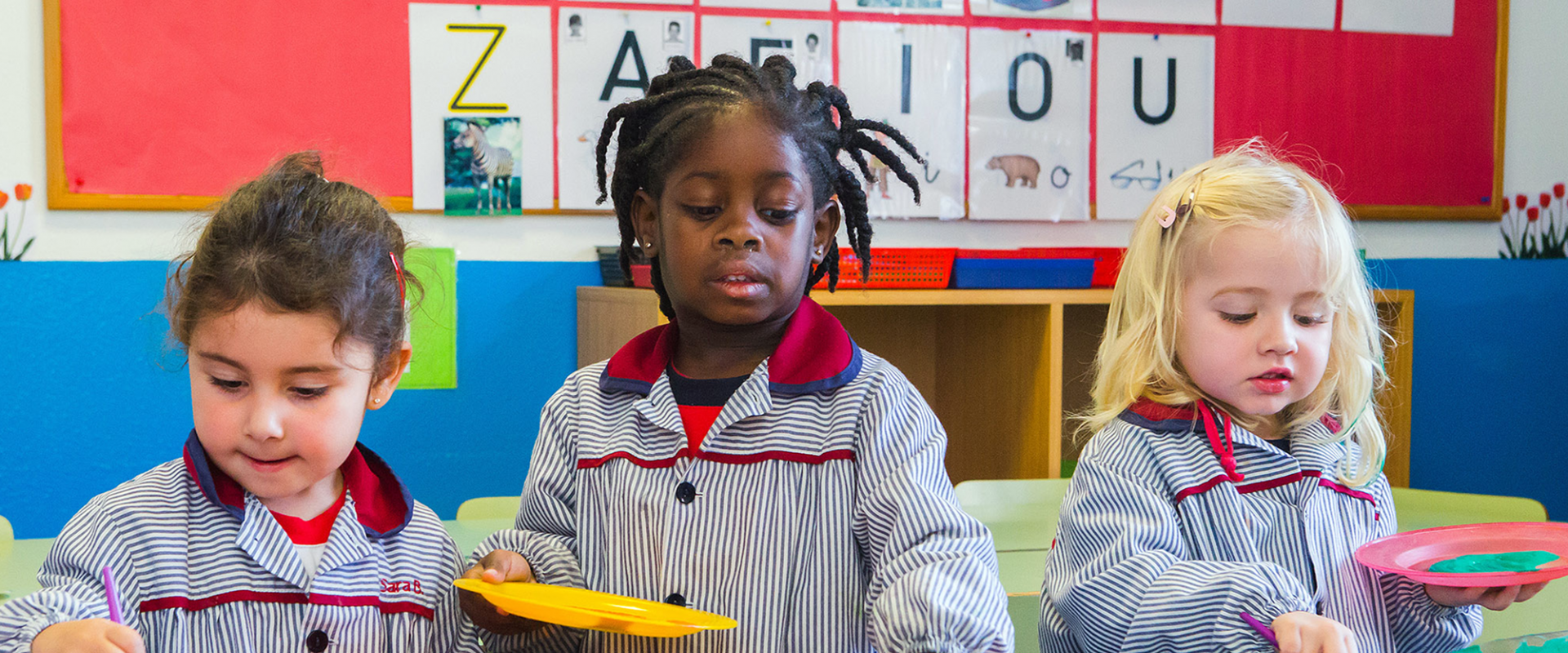
English
The natural process for language acquisition is the basis on which we prepare our children to start learning English. Our methodology is founded on real-life experiences, games and practice, drawing upon the children’s own interests. Teaching is age-adapted and aims at stimulating the children’s natural curiosity.
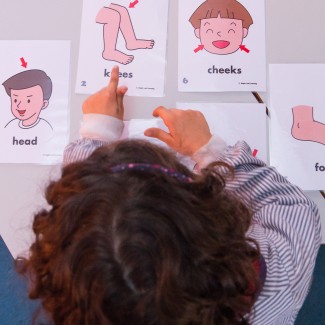
Emotion Education
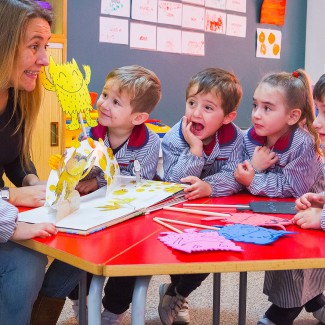
To identify and manage our emotions and to empathise with others’ are three basic skills that need to be trained at school. Developing these skills will allow children to handle conflicts and hardship that they will come across in life, both at a persona and professional level. It is essential to give children the opportunity to express themselves in an open yet respectful way at school, understanding emotions as something natural.
Literacy Skills
Languages allow children to express facts and stories, to explore new knowledge, to communicate ideas and feelings, to project their imagination, to construct thoughts and to partake in social intercourse. While exploring and experiencing each language specific resources and tools, the child apprehend their codes and processes, developing the understanding and expression capabilities.
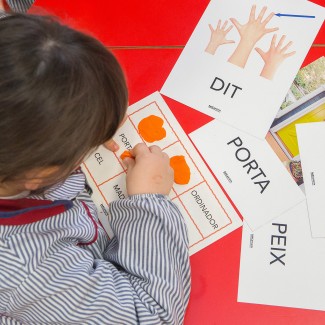
Philosophy 3/18
A wide and systematic syllabus (from 3 to 18 y.o.) with the main goal to enhance the child’s reasoning skills based on philosophy as a key subject. This project is the perfect vehicle to meet the common demand to teach our children how to think and to prepare them be active members of our democratic society.
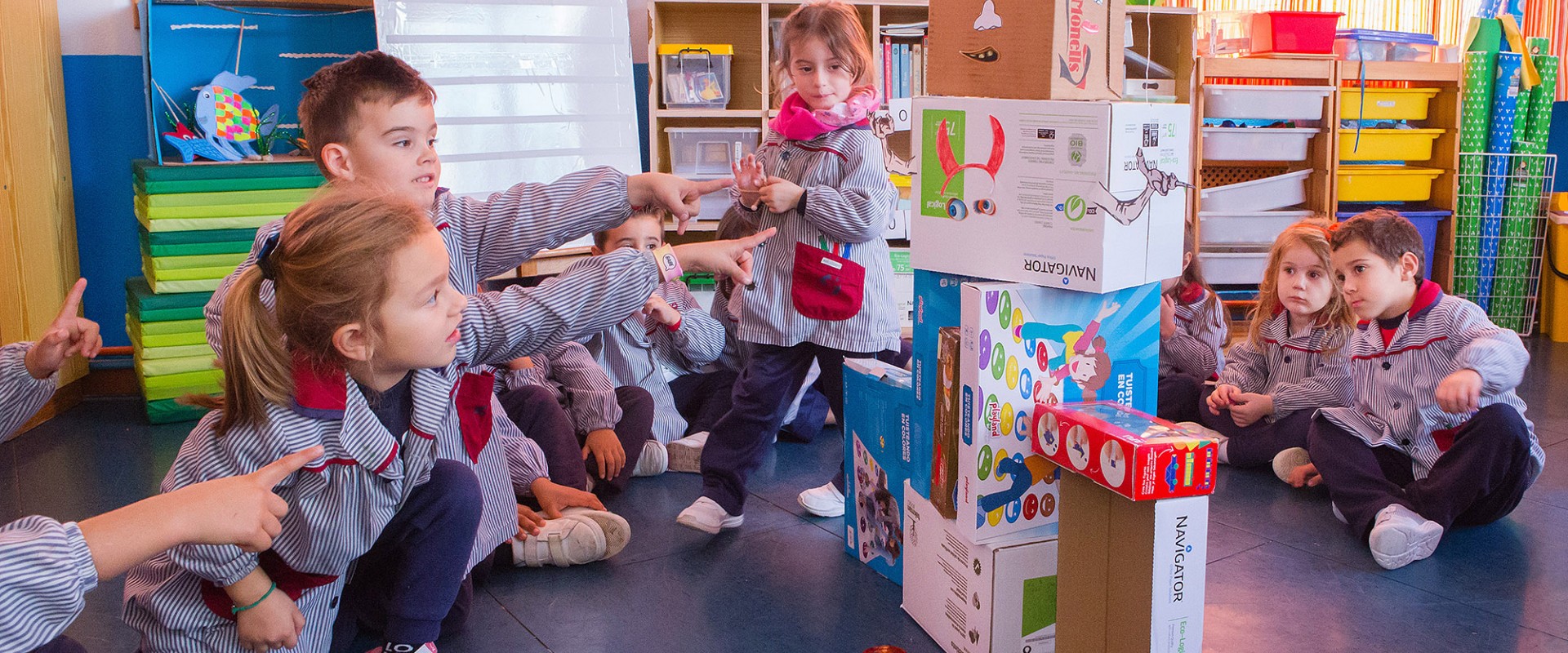
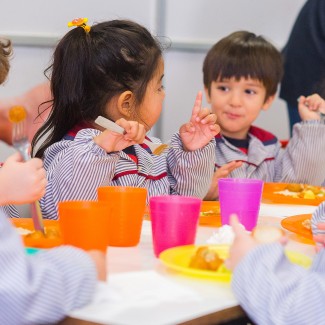
School Meals
Good habits are paramount in developing young children’s character. One of such good habits is NUTRITION. It is essential that children have fixed places and times to eat, since this will help them establish a pattern and will stop them from having to eat any time of the day. Likewise, they have to start learning how to sit properly, to use cutlery, not to play with food, not to stand up before they have finished, an so on.
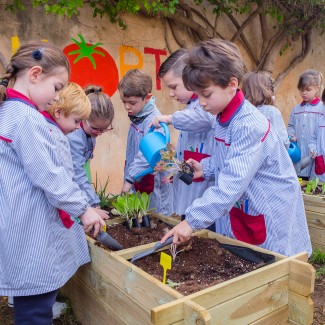
Orchard
It brings a number of very satisfactory, rich and unique experiences, which are adapted according to age and different interests. The orchard can be effectively used to teach our children curricular contents in various subjects. On the other hand, the conceptual learning about the orchard represents the ideal context to learn how to think, to educate the child’s emotional dimension and to tune social skills. Finally, one of the other main benefits is to learn to respect for the environment.
Violinproject
The aim of this activity is to further develop multiple intelligences through playing violin. The learning methodology is a combination of different systems and it is adapted for every age group. It is not exactly about learning the musical notes or how to play violin in a perfect way. In the cognitive dimension, it is about developing the child’s sense through listening and hearing recognition; violin strings are represented by monosyllabic colours, making it easy to play with rhythmic combinations. Children will compose their own pieces with melodies and lyrics. In the motor dimension, fine and gross psychomotricity, coordination and self awareness of the human body will all be tackled. The lessons are taught in English in small groups of up to 6 children.
